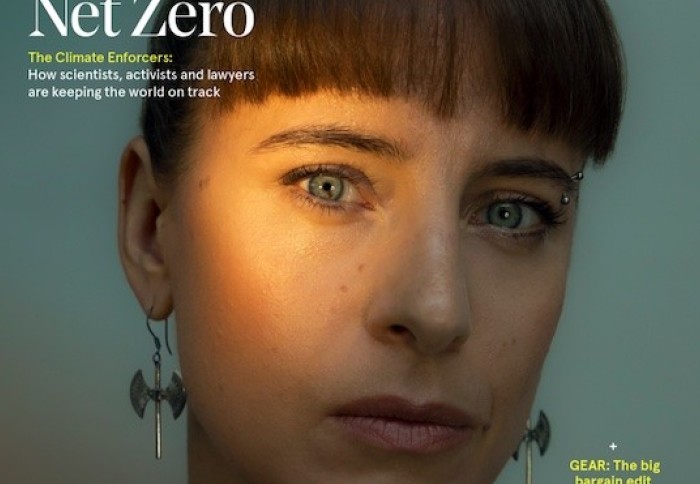WIRED magazine puts climatologist Dr Fredi Otto on its cover

Photos Maria Lax
The Grantham’s Institute’s Dr Fredi Otto is WIRED magazine’s January cover star, as part of a feature interview about her work as a climate scientist.
Senior lecturer in Climate Change and Environment, Dr Friederike (Fredi) Otto and her work on attribution science, feature on the front cover of popular science and technology magazine WIRED.
Dr Otto and her work join a long list of leaders in their field as the publication’s main feature, including Ukrainian president, Volodymyr Zelenski, climate campaigner, Greta Thunberg, Microsoft founder, Bill Gates, and legendary nature broadcaster, David Attenborough.
Her work with the World Weather Attribution (WWA) team, which she leads, is a key focus of the interview.
WWA is a group of international scientists whose assemble after extreme weather events that cross a threshhold of affecting many people and their livelihoods.
Together, they rapidly assess how much climate change has contributed to that extreme weather, and produce influential reports that gain global attention and headlines.

UK heat wave and Pakistan floods
WWA’s report was ready just nine days after temperatures reached their peak, and estimated that climate change had made the UK heatwave at least ten times more likely,
"...vulnerability is what makes the difference between an event having basically no impact or it being a catastrophe" Dr Otto
In the feature, Dr Otto shares insights from recent reports on the UK heatwave as well as the devastating monsoon flooding in Pakistan.
Speaking about the WWA’s report on the floods in Pakistan, Dr Otto says, in the feature;
“It could be that all of it is climate change, but it could be that [the role of] climate change is much smaller…vulnerability is what makes the difference between an event having basically no impact or it being a catastrophe.”
Reducing vulnerability
WWA’s work tends to make headlines when it concludes that climate change makes extreme weather more likely, but the opposite result can be even more useful to regions facing disaster - it gives agency back to countries. Dr Otto says:
“If you think it’s all to do with climate change, then there’s nothing you can do unless the global community gets its act together. But if you know that climate change is not actually playing a big role, or none at all, then that means everything you do to reduce your vulnerability actually makes a huge difference.”
Read more about extreme weather and climate change.
Using climate science and the law
Dr Otto also discusses the ways in which weather attribution can help us understand the past, but also prepare for future events and explains how attribution scientists are now working more closely with lawyers to champion climate justice.
“We have started to do a lot of work with lawyers, to basically bridge this knowledge gap between what we can say scientifically and what has so far been used in terms of evidence,” Dr Otto
She now wants to use her attribution reports to hold polluters to account for extreme weather events. With legal cases underway in Germany and Brazil, attribution science is moving into the courtroom.
“We have started to do a lot of work with lawyers, to basically bridge this knowledge gap between what we can say scientifically and what has so far been used in terms of evidence,” she says.
Climate change made rain behind deadly West Africa floods 80 times more likely.
Read the feature
The January/February issue of WIRED, featuring Dr Otto, is available on newsstands and via digital download from Thursday 1 December. See more at WIRED.
WIRED is, a US-based science and technology publication, with a total reach of 3.7m people in the UK.
Article text (excluding photos or graphics) © Imperial College London.
Photos and graphics subject to third party copyright used with permission or © Imperial College London.
Reporter
Jez Fredenburgh
The Grantham Institute for Climate Change